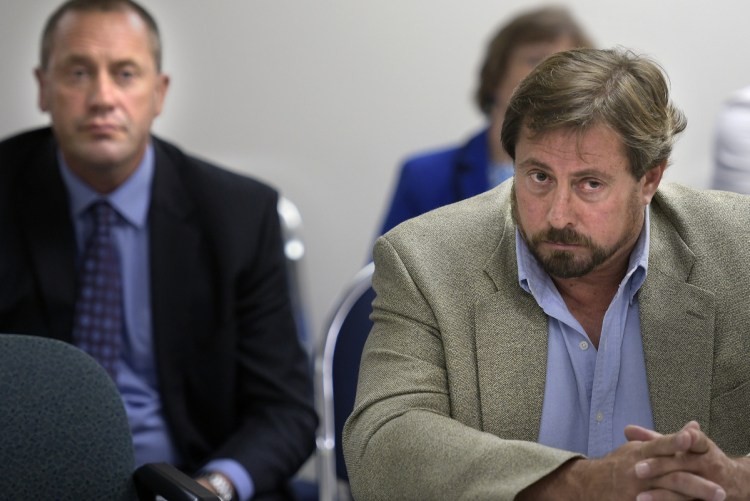AUGUSTA — The state ethics commission opted Wednesday to take no action on millions of dollars in withheld state Clean Elections funding in the hope that a judicial ruling will soon resolve the dispute, but the panel did not rule out calling a special meeting should the money continue to be held back.
During the roughly three-hour meeting of the Commission on Governmental Ethics and Election Practices, the four members agreed it was unfair that dozens of Clean Elections-qualified candidates have not received funding ahead of the November general election, but said the commission was not in a position to release the money.
At stake is about $3 million for the current fiscal year that was included in the state budget – and has already been transferred to the Clean Elections account – but that the commission cannot legally release to candidates because of a typographical error in the budget bill.
Also, Republican Gov. Paul LePage has withheld his signature from financial orders that would instruct the ethics commission to disburse $1.4 million in funds unused or returned by Clean Election candidates after the 2016 elections. LePage has signed off on similar financial orders in the past.
A lawsuit brought by Maine Citizens for Clean Elections against the governor was filed on behalf of those candidates and the Maine residents who made $5 donations to the candidates that qualified their campaigns for funding.
Two candidates, both Republicans, came forward to ask that the funding be released. Mark André, who is running for the Waterville-based House District 110 seat, and Jayne Crosby Giles, running in the Belfast-based Senate District 11, are two of the roughly 130 candidates around the state who are missing funding.
Most of the candidates who have not received funding are Democrats or unenrolled.
The Clean Election Act, established in 1996, is a voluntary program that fully finances qualified individuals running for governor or the Legislature. To qualify, candidates must collect a minimum number of donations of $5 or more made payable to the Maine Clean Election Fund. Once the candidate qualifies, he or she cannot accept private contributions.
Superior Court Justice William Stokes, a Democrat, said Tuesday he hopes to issue a ruling in the lawsuit next week, but he expects that his decision will be appealed to the Maine Supreme Judicial Court.
Jonathan Wayne, executive director of the ethics commission, said there is nearly $5 million in the Clean Elections Fund, likely enough to pay all the candidates, including Terry Hayes, an independent candidate for governor. However, he said the commission has not been authorized by the Legislature to release the funds. Wayne told the commissioners he remains hopeful the Legislature will address the typographical error soon.
Commission Chairman William Lee, of Waterville, said the commissioners were not going to make a decision Wednesday, but he did say they might call a special meeting, depending on how the court case goes. To call a special meeting, all the commission has to do is post a notification 24 hours in advance.
Joshua Tardy, who attended the meeting on behalf of the Senate Republican caucus, said he thought the commissioners could make the money available. He said they could also allow the Clean Elections candidates to finance their campaigns traditionally. However, he said the overall decision should be tabled for a few weeks in hopes the Legislature will solve the problem.
Robert Howe, an attorney representing Maine Citizens for Clean Elections, told commissioners that the law doesn’t permit these candidates to raise funds traditionally, and he also called on lawmakers to solve the problem.
Send questions/comments to the editors.



